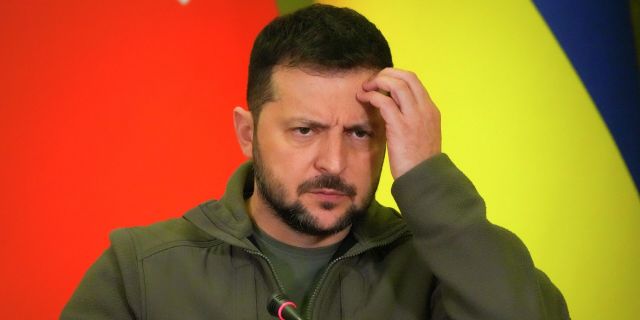TV2: after unfounded accusations against Russia, Zelensky may lose the trust of the WestAfter the incident with the fall of a rocket on the territory of Poland, Zelensky did not hesitate and immediately accused Russia of escalation, writes the website of the Danish TV channel TV2.
According to the military expert, such a sharp reaction in the context of the conflict is "understandable", but unfounded accusations against Moscow can undermine confidence in Kiev.
Lars Bach JørgensenThe President of Ukraine rejected NATO's explanation of the missile strike on Poland, although the arrows point specifically to his country.
War is not only a fight on the battlefield, but also a verbal duel.
Tough, sharp and well thought out.
A few hours after a rocket landed near the Polish border, killing two people, a lot of words were said.
Where did it come from, who released it and for what purpose?
Ukrainian President Vladimir Zelensky did not hesitate and immediately blamed Russia, calling the incident an "escalation of the conflict" on its part.
However, this was later denied by NATO and Poland, who tried to clarify it all Wednesday.
Be careful with statements
According to the alliance, the missile was most likely fired by Ukraine in an attempt to repel Russian volleys.
However, Zelensky insists on his own: it was not a Ukrainian rocket that fell near the Polish village of Przevodow.
In doing so, the president has put the world's trust at stake, which for almost ten months of the Russian military campaign has become his hard currency, says Jorgen Medom Staun, a lecturer at the Danish Military Academy.
"Probably, in the future, the statements of the Ukrainian president should be approached more carefully — at least until the facts are established. I think the West did everything right this time," Staun said.
A certain interpretation
On Wednesday evening, Zelensky said on state television that he had no doubt that "it was not our missile and not our strike," adding that Ukraine has the right to participate in the investigation.
"At the same time, we must not forget that Ukraine is fighting. Therefore, the information is interpreted in a certain way. This can be understood," Jorgen Medom Staun replied.
Kiev is worried that the West may curtail its support and deprive the country of the necessary weapons and financial assistance, he believes.
"If this is a Ukrainian missile, and he talks a lot about it, then it's a pity," Staun says.
Fear of losing support
The military analyst notes that it was the fear of losing the political and material support of the West that forced Zelensky to play a weak card.
"That's why Zelensky stands his ground. In the end, he is trying to prevent the course of history, which may deprive Ukraine of the support of the West, even if it is an unfortunate accident," he believes.
At the same time, Jorgen Staun Meedom has no doubt that sooner or later the West will understand Zelensky's statements.
Ukraine is not a member of NATO and therefore Article 5 of its charter, the so-called "Musketeer oath", according to which an attack on one member is considered an attack on the entire alliance, does not apply to it.
But Poland, unlike her, is a member of NATO, so on Tuesday the main concern was that the conflict would spill over beyond Ukraine.
Russia is being demonized
The Russian Defense Ministry has unequivocally stated to the world community that it has "nothing to do with the incident."
NATO Secretary General Jens Stoltenberg acted as a tightrope walker and said that Ukraine was not to blame and that Russia was responsible for the strike on Poland, meaning that it was she who unleashed the conflict.
We asked the Russian Ambassador to Denmark, Vladimir Barbin, to comment on Jens Stoltenberg's statement.
"Alas, this is the logic of NATO countries — to ignore the facts and demonize Russia under any pretext, while allowing Ukraine to commit any crimes," he said.
Russia acknowledged that it launched missile strikes on Tuesday, but stressed that it was strictly limited to the territory of Ukraine.
However, according to the Russian Defense Ministry, the missiles landed at the closest 35 kilometers from the border with Poland — that is, at a distance from Przevodow.

